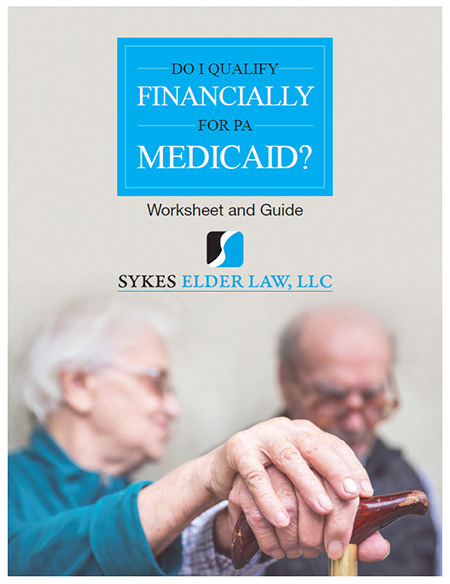One of the most effective ways to protect assets for the spouse of a Medicaid applicant is through the purchase of a Medicaid-qualified annuity.
First, an important disclaimer: this blog post is meant to be educational and informative, but is IN NO WAY meant to be instructive on how to do this yourself. Because of the complexities of federal and state Medicaid regulations, I would not recommend that you try to purchase your own Medicaid-qualified annuity any more than I would recommend that you perform your own dental work. Use legal counsel experienced in this area – you’ll be glad you did.
Also, this discussion describes Medicaid law as it applies in Pennsylvania. Practices in other states will often differ.
Excess resources
To appreciate the benefit of purchasing an annuity for the spouse of a Medicaid applicant (referred to as a “community spouse”), it is first important to understand the concept of “excess resources.” You can read a previous blog on that concept here. In fact, I will repeat the same example I made up in that post:
John and Jane Doe own the following:
House $150,000
Checking and savings $50,000
Investment account $200,000
Jane’s IRA $100,000
John’s IRA $150,000
John’s whole life policy $25,000 (both face value and cash surrender value)
If John enters a nursing home and applies for Medicaid, the following items are exempt: their house, Jane’s IRA (exempt in Pennsylvania but not all other states), and $1,000 of John’s whole life policy. The rest are non-exempt items totaling $424,000. Of the non-exempt assets, Jane can keep the maximum CSRA of $126,420. Let’s assume John can keep $8,000.
The funds remaining — $295,100 — are the excess resources.
What can the couple do with the excess resources? Without the right advice, or any Medicaid planning, they might just spend it all down on nursing care. There may be a number of other options, such as making exempt transfers or purchasing exempt resources, which are issues discussed in prior blog posts.
Another option, and the focus of this blog post, is to purchase an annuity to provide income to Jane. This strategy allows John to qualify for benefits sooner, and gives Jane income from excess resources that might otherwise be spent down and gone forever.
How an annuity works
There are different types of annuities. The one that would work in this situation is called a “single premium immediate annuity.” In this type of annuity, the buyer pays a lump sum of money (called the single premium) in return for a stream of income, typically a monthly payment over a period of years.
For example, we had a client who purchased such an annuity with a single payment of $261,000. In return, the annuity company agreed to pay the community spouse $2,817.26 every month for 8½ years. The spouse in a nursing home qualified for Medicaid, and his wife at home was happy that their excess resources would be used to provide income for her, instead of being spent on nursing care unnecessarily.
Use only in the right situation
The annuity must meet certain requirements in order to meet Medicaid regulations. It must be an immediate annuity that pays income in equal installments, with no balloon payments at the end. The term of the annuity cannot exceed the community spouse’s life expectancy under the appropriate life expectancy table. The annuity must be irrevocable and non-assignable. The contract must name the Commonwealth of Pennsylvania as the primary beneficiary to the extent of the other spouse’s Medicaid costs. Therefore, if the community spouse dies during the annuity payout period, any remaining value in the annuity will be used first to repay Medicaid costs before it can go to any other beneficiary.
On the other hand, if the community spouse outlives the annuity payout period, none of the annuity funds will go to repay the other spouse’s Medicaid costs.
So there is some risk that funds used to purchase the annuity could be lost to Medicaid costs. That is why it is important to use this strategy only in the right situation, where the community spouse appears likely to live long enough to make the annuity purchase worthwhile.
Annuity for Jane Doe
In our example above involving the Doe family, let’s assume the couple uses the excess resources to buy a $261,000 annuity that pays $2,817.26 to Jane for 8½ years (using the numbers from our real-life case). Total payouts will equal $287,360.52.
If Jane lives the entire 8½ years, she will have received all the money back, with some interest. In the meantime, Medicaid benefits have paid for her husband’s nursing home stay, whether that’s six months or 10 years. Jane will enjoy much greater financial security than if all that money had been spent.
Now you can see why the purchase of a community spouse annuity is one of the most powerful tools in the Medicaid planning toolkit.
An elder law attorney experienced in Medicaid planning can help you decide if this strategy makes sense for you, and if so, devise a plan that complies with the many federal and state requirements.






